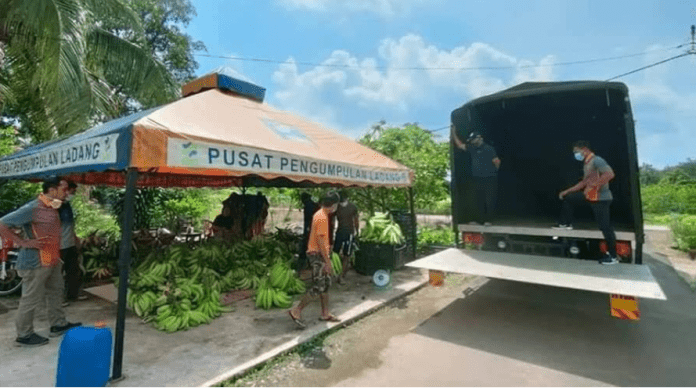The agriculture industry contributes a high percentage towards the overall Gross Domestic Product (GDP). In 2019, 7.1 percent of the nation’s GDP came from the agriculture sector.
This reinforces the fact that agriculture is an industry that will not die out but will indeed be crucial in moments of crisis, when economic closures due to the pandemic caused unemployment, business losses, overwhelming debt, and much more devastation.
If implemented systematically with the support and training from agencies under the Ministry of Agriculture and Food Industry (MAFI), agricultural resources could potentially be used to generate one’s income
The Contract Farming Program is one mechanism implemented to assist small and medium-scale agricultural entrepreneurs in ensuring the production of their agricultural produce gets a commensurate return.
In the Ninth Malaysia Plan (9MP), the Contract Farm program was introduced through four core strategies, which are to secure the market and increase producer income, increase the production of local fruits and vegetables, ensure the production of quality agricultural products meet market demands, as well as enhance technology transfer along the supply chain.
After the Marketing and Export Division (BPE) was established in 2017 and the program was transferred to BPE, the focus of the program began to shift to the marketing aspect.
In the Twelfth Malaysian Plan (12MP), this program was replaced with the MAFI Marketing Services Program or known as the Contract Farm Program 2.0 (LK2.0).
The LK2.0 program is a cooperation program between marketers and producers facilitated by the agencies and departments under MAFI.
In return for the cooperation agreement, marketers and manufacturers who are registered as program participants are eligible to receive incentives and marketing facilities offered through this program.
Since the 9MP, the number of LK2.0 participants has reached about 17,000 people. LK2.0 emphasizes four main objectives, namely:
- Connect participants with the market and ensure production is marketed.
- To help market entrepreneurs get supplies directly from agricultural producers so that the produce is channeled on a scheduled and continuous basis.
- Identify and develop production participants into marketing entrepreneurs.
- Increase the income of participating producers/farmers
The program is open to new entrepreneurs as well as existing entrepreneurs in the field of agriculture who meet the selection requirements and criteria set.
Participants, whether individuals, companies, or cooperatives can participate in the LK2.0 provided they are registered with any MAFI department/agency including the Sabah Department of Agriculture and the Sarawak Department of Agriculture.
Participants must also own the land area of the project site with legal ownership/lease.
The marketing implementation agencies, namely the Federal Agricultural Marketing Authority (FAMA), Farmers Organization Board (LPP), Malaysian Pineapple Industry Board (LPNM) and Malaysian Fisheries Development Authority (LKIM) will evaluate, select and approve participants’ applications after registration.
These agencies also have the role of providing marketing assistance to participants, monitor and record the marketing activities of each participant in accordance with the set KPIs, buying and marketing their produce, act as facilitator or intermediary between producers, marketers and markets, prepare forward agreements and manage the process of signing agreements, as well as develop market opportunities to explore new markets for the those involved.
Participants involved in the LK2.0 program are provided with assistance in the form of goods (in-kind) as well as marketing advisory services based on the needs of participants according to the scope of the program that has been approved.
Market Guarantee
Essentially, industry and commercial buyers who work together with this program will receive a consistent supply from producers who are participants of this program. This commitment is expressed through an agreement signed by both parties.
LK2.0 participants are given the option to sign a sale and purchase agreement with FAMA or LPP known as a Forward Agreement. Through this agreement, LPP/ FAMA will purchase the participants’ output according to the mutually agreed quantity and grade.
Moreover, agreement of purchase prices is either decided at a fixed price or at the current market price depending on the current price floor.
A price floor is the minimum price that will be paid to participants in the event of a price drop on a commodity. This is to ensure that participants can continue their agricultural activities while guaranteeing a regular market.
Agencies that implement this program will also conduct marketing arrangements for participants to help diversify their market opportunities. Through this market arrangement, participants will be matched with industrial/commercial buyers such as supermarkets, grocery stores, eateries, caterers, and others.
LK2.0 makes full use of the e-LK system to ensure that every report and participant details are recorded systematically.
Through this e-LK system that was developed in 2020, the profile of each participant will be recorded including the type of crop, estimated date of production, estimated production amount and production value, and more.
To know more, visit here










